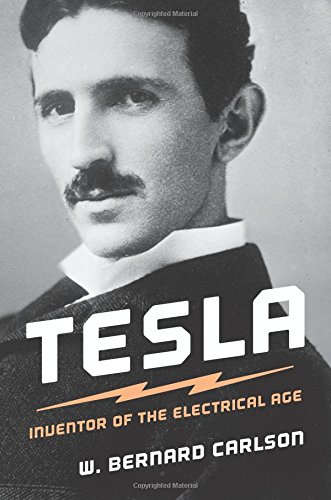We tend to think of scientists as quietly toiling away in their laboratories, not looking to bother anyone, but that’s not always the case. Great minds often come with powerful personalities. Many of our greatest thinkers would often find themselves on opposite sides of an issue and would not hesitate to sling some mud at each other. The rivalry between Nikola Tesla and Thomas Edison is, undoubtedly, the most famous case of a scientific smackdown, but it’s far from the only example.
10 Thomas Huxley vs. Richard Owen
During his career, Richard Owen had his fair share of notable achievements, among them coining the word “dinosaur” and founding the Natural History Museum in London. However, his relationships with his peers had always been strenuous. Nowadays, Owen is regarded as jealous and petty toward his colleagues, even plagiarizing their works on occasion. His rivalry with Gideon Mantell was probably his most bitter feud, but his rivalry with Thomas Huxley was much more beneficial for the scientific community.
 My Inventions
Best Price: $5.35
(as of 09:50 UTC - Details)
My Inventions
Best Price: $5.35
(as of 09:50 UTC - Details)
Huxley was known as “Darwin’s Bulldog” for his staunch support of evolution. Owen, on the other hand, was not onboard with Darwin’s theory, particularly the whole “man related to apes” bit. He sought to prove that humans and other primates, particularly the gorilla, were nothing alike by studying their brains. Huxley claimed the opposite and managed to prove it by discovering the hippocampus minor (now called the calcar avis) in apes, a part of the brain Owen had previously asserted only existed in humans.
The controversy became known as the Great Hippocampus Question. Even though it was an easy target for humorists and newspapers, it shined a spotlight on evolution. The scientific community considered that Huxley handily won the battle and accepted evolution as the leading theory. The matter would be explored further in prominent publications such as Charles Lyell’s Geological Evidences of the Antiquity of Man and Darwin’s own follow-up The Descent of Man.
9 Robert Koch vs. Louis Pasteur
Robert Koch and Louis Pasteur were instrumental to the development of the field of microbiology, not to mention the acceptance of germ theory. However, their contradicting opinions led to a public rivalry. The backdrop to this rivalry was the Franco-Prussian War, so nationalist sentiments most likely exacerbated their feud.
 Tesla: Inventor of the...
Best Price: $1.49
Buy New $7.00
(as of 03:50 UTC - Details)
Tesla: Inventor of the...
Best Price: $1.49
Buy New $7.00
(as of 03:50 UTC - Details)
By the 1870s, Pasteur shifted his attention to specific diseases instead of general processes like fermentation and putrefaction. As it happened, he focused on anthrax, a disease also studied by a young German doctor named Robert Koch.
Initially, this overlapping interest didn’t cause problems. Koch focused on identifying and isolating the microbes responsible for the illness, while Pasteur was looking into immunization. The two eventually met at a medical congress in London in 1881, where their encounter appeared to be friendly.
However, it wasn’t long until Koch and his German followers started finding faults in Pasteur’s work. Supposedly, when Pasteur organized a meeting to address his critics, the rivalry was exacerbated by a simple case of mistranslation. When Pasteur said “recueil Allemand” (“German work”), someone translated it to Koch as “orgeuil Allemand” (“German arrogance“). Over the next years, a game of one-upmanship would develop between the two, each one eager to show up the other.
This rivalry turned out to be quite beneficial for mankind. Pasteur would discover a vaccine for rabies, Koch would identify the cause of tuberculosis, and each man would found one of the premier medical research institutes in the world.
 Amazon Prime (One Year...
Check Amazon for Pricing.
Amazon Prime (One Year...
Check Amazon for Pricing.
8 Humphry Davy vs. Michael Faraday
Here, we have a tale of two renowned chemists, a classic example of the student surpassing the teacher. Humphry Davy was one of the most acclaimed scientists of his day. He discovered several earth metals, invented the Davy lamp to use in mines, helped discover chlorine and iodine, and also developed uses for nitrous oxide. However, his achievements would soon be overshadowed by his student, Michael Faraday, who became a pioneer of electrochemistry.
Faraday had almost no formal education when he became an apprentice. However, he was very keen to study chemistry and often attended lectures on the subject. Fortunately for the entire world, Davy saw something in Faraday and took him on as an apprentice despite his background as a bookbinder. Over the years, Faraday not only learned from Davy but also inherited some of his positive traits. Both men loved lecturing and passing on their knowledge to new generations. When he invented the Davy lamp, which became indispensable for miners, Davy avoided patenting it so more people would be able to benefit from its use. Like him, Faraday developed a disinterest in money and thought science should serve the public.
Despite being knighted and receiving numerous honors, Humphry Davy was overshadowed by his former pupil’s accomplishments. On a few occasions, he criticized Faraday’s work and even tried to block his entrance into the Royal Society. However, his bitterness faded away toward the end of his life. When Davy was asked what his greatest discovery was, he simply replied, “Michael Faraday.”





